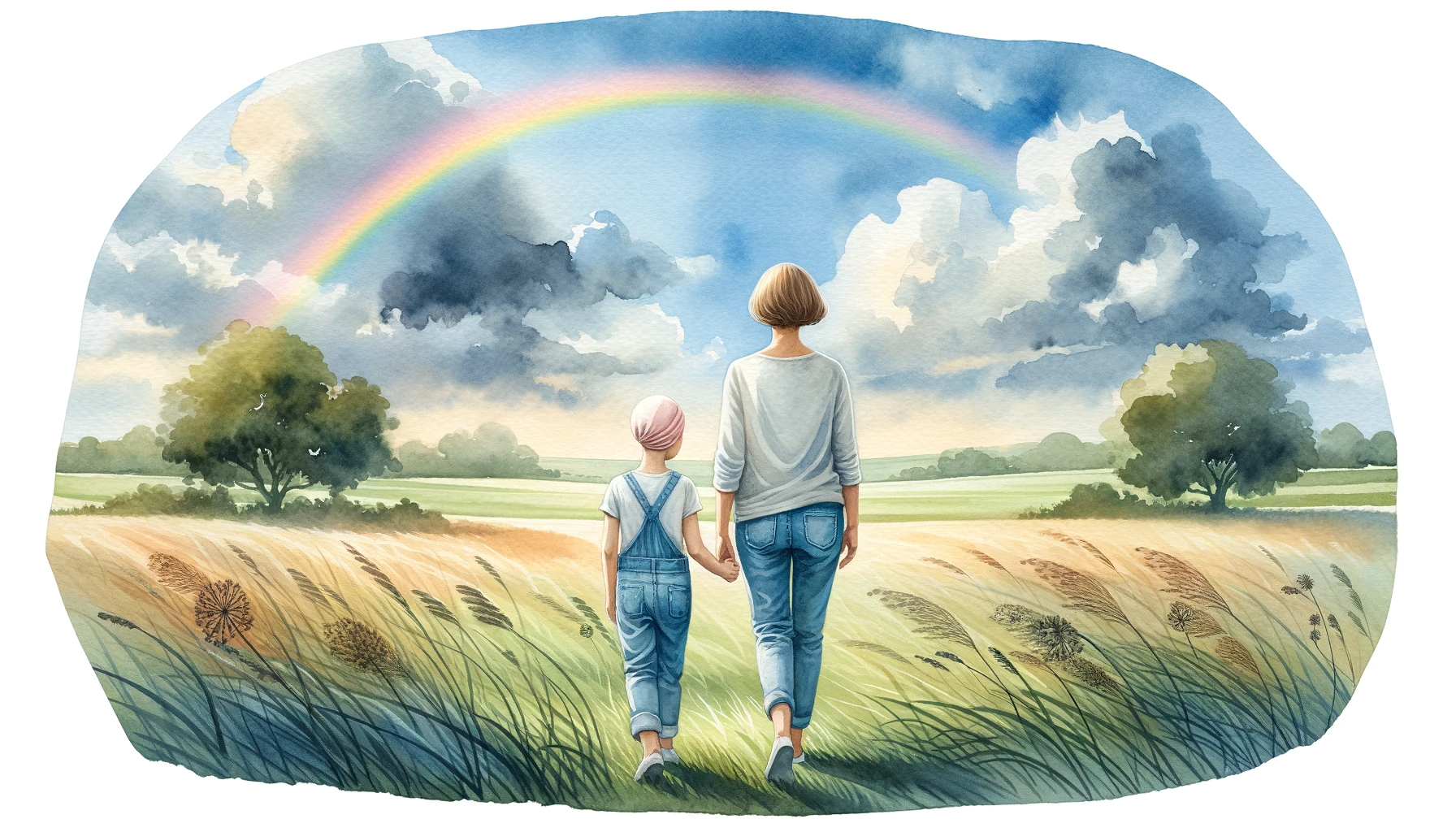Izzy’s Journey - Navigating Diagnosis, Treatment and End of Life for Children
In the difficult journey that is pediatric cancer, every story, every lesson, and every voice matters. Our aim is to give those stories a platform, turning the spotlight onto real-life experiences. Today, we delve deeper into the day-to-day challenges and triumphs that accompany a pediatric cancer diagnosis, as told by Molly—a mother whose daughter Izzy was a young champion in this fight.
Mettle Health
The quotes in today’s article are taken from a webinar produced by Mettle Health, an organization that helps patients and caregivers reframe the way they think about their well-being as relates to chronic or serious illness so they can make sound decisions for themselves no matter what they’re facing. You can watch the webinar in full here.
The Journey: Izzy's Story
Molly, a parent who shared her story, offers an intimate look into her daughter Izzy's life and battle with pediatric cancer:
Sure, that's Izzy. Her full name is Israel Israel Marie, and she was just an extraordinary, extravagant soul... she was diagnosed with cancer when she was three years old and then she was finally set free at 13.
Izzy's journey started when she was just a toddler and continued for a decade. Her story is not just a timeline of medical procedures, but a testament to her vibrant spirit.
Trust Your Gut
Molly highlights the importance of trusting your parental instincts, especially when dealing with persistent symptoms.
You know Izzy was experiencing symptoms for nine months before we got a diagnosis and it it can be difficult. I mean her her symptoms were so vague because it was just stomach pain. But even though the doctor wasn't impressed by them and we thought it was something GI or an allergy. I could see that the pain was getting worse, the episodes were getting more frequent, and they were getting more intense. And so it just didn't feel right. It continued to feel. I could see that something was getting wrong. It was waking her up in the middle of the night. She'd scream in the fetal position. And so, yeah, I think it's just important that that parents do remember when they walk into a doctor's office, the doctor is going to present what's most likely what's most reasonable, what's most rational. And as parents, we can sometimes be a little over assertive and freak out about things. But in my gut, I knew…So I think you just have to trust yourself.
Medical professionals might not always see what you see, and when you sense something's off, don't downplay it. Your gut feeling could be the vital clue in identifying a rare condition.
Trusting your instincts is paramount, especially when the symptoms are not overt. It's a fine balance between listening to medical professionals and heeding your parental intuition, and Molly's experience drives home the importance of the latter.
The Importance of Well-being
Health is holistic, and a focus on well-being can be a source of strength and joy in trying times. Molly recounts how Izzy found happiness even amidst her battle:
Yeah, so Izzy loved to dress up... she very much thought she was adorable and so she loved to get fancy... she was just all about being the center of attention.
Izzy's zeal for life was undiminished by her diagnosis. Whether it was dressing up for photo shoots or participating in fundraisers, she made the most of each day, reminding us that well-being is as much emotional and psychological as it is physical.
Lessons for Parents
It’s essential for parents to remember that they are advocates for their children’s health. Physicians give generalized advice based on what's most common, but every child's situation is unique.
Autonomy for Izzy
Yeah, I think it was a really cool experience for them as well to see the shift. She basically, I don't know, maybe we were like 2018. She was like, I'm done with treatment. I don't want to do any of it anymore. I'm not doing this. I'm not doing this. And what the problem really came down to we were making these decisions for her right in front of her. She was in a hospital bed and we weren't inviting her into the conversation. And so when we begin to say, well, what if you got to pick what you did and what you didn't do, Something like, I'm not going to do anything that requires that I have a catheter. She liked that. So she said yes, I want to start being involved in these conversations. So it was a learning curve for all of us. And I'm glad that she brought it to her attention because she deserves to be a part of those conversations.
Conclusion
Pediatric cancer is a daunting journey for both the child and the family. Yet, as we learn from champions like Izzy and parents like Molly, it's a journey that can be navigated with resilience, love, and a deep understanding of both its emotional and physical intricacies.
References & Additional Resources
MettleHealth Podcast, Episode: "Navigating Pediatric End of Life"

